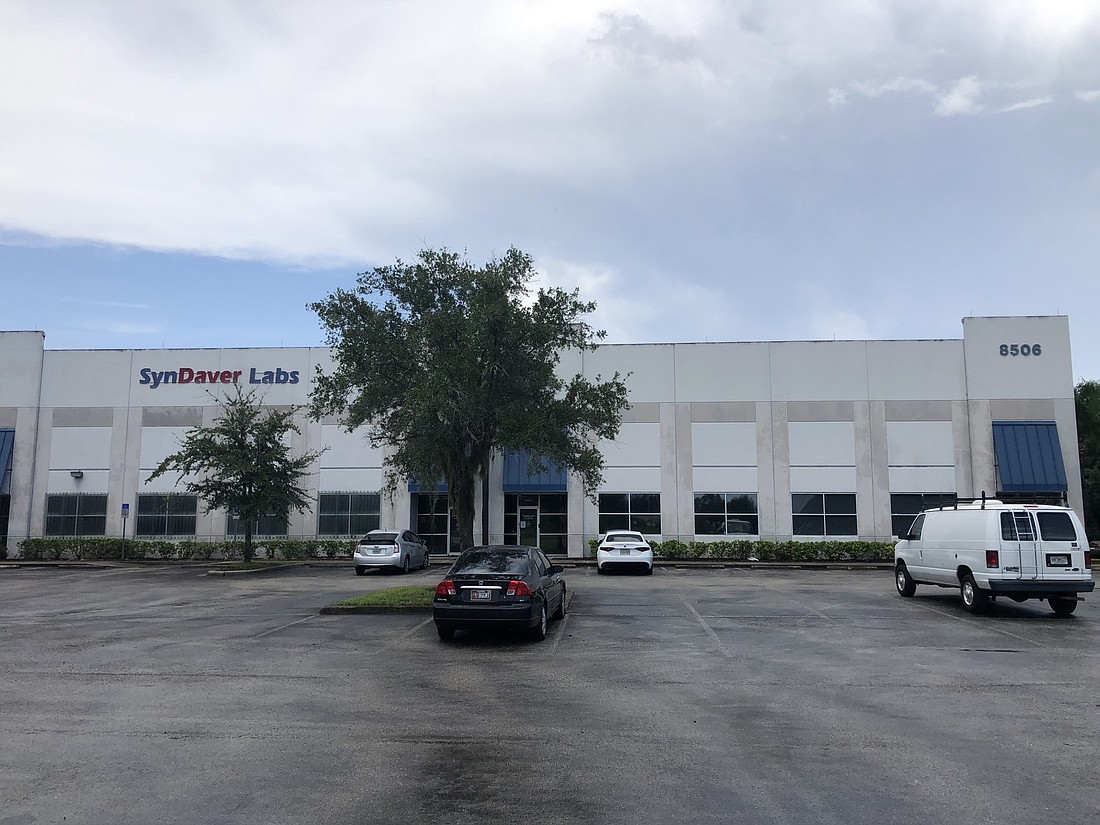- April 9, 2025
-
-
Loading

Loading

Tampa biotech SynDaver made a name for itself as a pioneer in manufacturing synthetic but extremely lifelike human and animal bodies, including dogs and pigs, used in medical and veterinary schools. Last year, it expanded into the secondary school market, introducing SynFrog, an artificial frog that can be dissected in biology classes but then reused, saving school districts money and putting squeamish students at ease.
More recently, the company, led by founder and CEO Dr. Christopher Sakezles, acquired a 3D printing business and used it to establish a subsidiary, SynDaver West, headquartered in Loveland, Colo. And in response to the coronavirus pandemic, the firm repurposed its manufacturing capabilities to produce highly sought-after respirator masks.
With this surge of activity, what’s next for one of Tampa Bay’s busiest, most high-profile manufacturers as it prepares for a much-anticipated IPO expected later this year or in the first half of 2021?
“It might seem like a terrible time to start a new business, but I don't think it is. The hardest component of starting a business is having the intellectual horsepower. And we've got a lot of that sitting on the sidelines now.” Dr. Christopher Sakezles, founder and CEO of SynDaver
The answer is a manufacturing incubator — one of the first of its kind in the region. The 50,000-square-foot property, at SynDaver’s campus at 8506 Benjamin Road, could house up to 10 companies, depending on the size of their footprint. The goal of the project, Sakezles says, is twofold: One, create an ecosystem of tech companies that will complement SynDaver’s goals and capabilities; and two, reduce American companies’ reliance on goods made in China.
“We're specifically looking for companies that are going to be manufacturing products that will be used here in the U.S., with a focus mostly on items that will have some kind of synergy with what we make now,” Sakezles says. “So that's biotech, health care and medical devices — that sort of thing.”
SynDaver plans to offer reduced-rate leases to the companies it selects for the incubator. It might even offer space for free in exchange for equity stakes. Sakezles expects to have no trouble filling the incubator — he hasn’t even begun to formally market the incubator but has already shown it a few times. That’s partially indicative of SynDaver’s high profile in the biotech industry, as well as Sakezles’ reputation as an innovator and entrepreneur.
Because of pandemic-related layoffs and business closures, “there's a lot of idle talent right now,” Sakezles says. “There are so many people out of work. That's really all it takes. I started SynDaver in 2004, when I was laid off from my last job. I didn't intend on starting a company at the time, but the necessity of events made me do it.”
Sakezles says a business incubator has always been part of his long-term business strategy. Current events sped up its development. “I thought it would be a few years down the road, but because of what’s going on now, I think it made sense to accelerate plans.”
The nascent incubator had been used by SynDaver for general manufacturing and office space, but Sakezles expects it to be a hive of innovation in future months and years as the region’s economy revs back up.
“We’re looking to capitalize on the availability of folks who otherwise would have nothing better to do than start new businesses,” he says. “It might seem like a terrible time to start a new business, but I don't think it is. The hardest component of starting a business is having the intellectual horsepower. And we've got a lot of that sitting on the sidelines now.”
Because of the trade war with China, Sakezles says there’s also an unmet need for a manufacturing incubator geared toward tech entrepreneurs who need access to specialized materials.
“Manufacturing needs to be brought back to the U.S.,” he says. “The Chinese have been threatening to cut off the supply of medical devices and pharmaceuticals; they periodically threaten to cut off the supply of rare-earth elements. They’re just not a reliable partner — they never really were, but the situation between us and them is becoming openly hostile, and I think it's going to continue to worsen.”
Sakezles doesn’t plan to play a big role in the day-to-day operations of the incubator, instead leaving it in the hands of the firm’s HR department to manage. He’ll be available to offer guidance as needed. "People are always interested in my experiences and how I would do things," he says, "and I'm pretty free with that advice.”